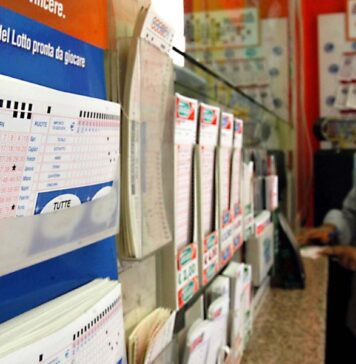The European Court of Justice was called upon to rule on the merits of the rule contained in Article 56 of the European Directive (TFEU) which prohibits any national legislation which, without objective justifications, hinders the concrete exercise of the freedom of movement of services or which has the effect of making the provision of services between Member States more difficult than the purely internal provision of services within a State, in the case of a request for reimbursement of lost bets, motivated by the absence of a German license and unjust enrichment, where the organizer is authorized and controlled by authorities in another Member State.
The request for a preliminary ruling was proposed by the First Chamber of the Civil Court of Malta. The matter is linked to the rulings of the German courts which accepted players' requests to be reimbursed for their bets considering the fact that the operators of online gaming services did not have a German state license (but issued by Malta).
Should [Article] 56 TFEU be interpreted as meaning that the restriction of the freedom to provide services by means of a general ban on online slot machines in the Member State of the consumer (State of destination) in respect of online casino operators who are authorized and regulated in its State of origin (Malta) cannot be justified by overriding reasons of general interest:
– where the Member State of destination allows, at the same time and everywhere, similar gambling in physical locations with authorized slot machines in gaming halls and restaurants for private operators, more intense gaming in physical casinos, operations of [the] national lottery authorized by state lotteries in more than 20 000 lotteries that cater to the public; And
– authorizes licensed online gaming operations for private sports and horse racing betting operators and private online lottery intermediaries selling the products of state lotteries and other licensed lotteries;
although the same Member State – contrary to the [omissis] rulings [of the Court of Justice] in the cases Deutsche Parkinson (C-148/15, paragraph 35) 1 , Markus Stoß (C-316/07) 2 and Lindman (C-42 /02) 3 – does not appear to have produced scientific evidence demonstrating either the existence of specific dangers inherent in such games, which contribute significantly to the achievement of the objectives pursued by its regulation, in particular the prevention of problem gambling; And
and the fact that, in consideration of said dangers, the limitation of the ban to online slot machines only - unlike all gaming offers permitted for online and physical slot machines - can be considered suitable, unavoidable and proportionate to achieve the objectives regulations.
2. Must Article 56 TFEU be interpreted as precluding the application of an absolute ban on online casino gambling referred to in Article 4(1) and (4) of the German Interregional Gaming Treaty? (hereinafter: the «GlüStV»), if the German gambling legislation (hereinafter: the «GlüStV»), by virtue of its Article 1, does not aim to impose a total ban on gambling gambling, but rather to [omissis] «direct the population's natural gambling instinct towards orderly and controlled channels, as well as to counteract the development and spread of unauthorized gambling on the black market» and there is a strong demand of online slot machines by players.
3) Should Article 56 TFEU be interpreted as meaning that a general ban on online casino game offers cannot be applied where:
– the governments of all the Länder of that Member State have already agreed that the dangers of such online gambling offers can be combated more effectively through a system of prior official approval, rather than through a total ban; And
– have drafted and agreed on a future regulatory framework with a corresponding interregional treaty, which replaces the total ban with a system of prior approval;
– and, in anticipation of this future regulation, decide to accept the corresponding gambling offers without a German license, subject to certain requirements, until the German licenses are issued;
although, by virtue of the judgment [omissis] Winner Wetten [(C-409/06)1 ], Union law cannot be temporarily suspended.
Should Article 56 TFEU be interpreted as meaning that a (destination) Member State cannot justify national legislation by citing overriding reasons of general interest, if:
– the aforementioned legislation prohibits consumers from placing cross-border bets authorized in another Member State (of origin) on lotteries authorized in the Member State of destination, which are authorized and regulated there; And
– lotteries are authorized in the Member State of destination and the legislation aims to protect players and minors;
– and the legislation on authorized betting on lotteries in the Member State of origin also aims to protect players and minors and provides the same level of protection as the legislation on lotteries in the destination State.
Should Article 56 TFEU be interpreted as meaning that this provision precludes the recovery of stakes lost in the course of participating in (secondary) lotteries on the basis of the presumed illegality of the operations, due to the lack of a license in the consumer's Member State, in the case of:
– such a license for private (secondary) lotteries is excluded by law;
– and this exclusion is justified by the national judges with an alleged difference between a bet, placed with a state operator, on the outcome of a lottery organized by a State and a bet, placed with a private organizer, on the outcome of a lottery state.
Should Article 56 TFEU be interpreted as precluding the recovery of stakes lost in the course of participating in (secondary) lotteries on the basis of the presumed illegality of the operations in the absence of a license in the consumer's Member State, if :
– the law excludes such license for private (secondary) lotteries
– and this exclusion in favor of state lottery organizers is justified by the national judges with an alleged difference between a bet, placed with a state operator, on the outcome of a lottery organized by a State and a bet, placed with a private organizer , on the outcome of the same state lottery.
7) Should Article 56 TFEU and the prohibition on abuse of rights {[omissis] Niels Kratzer judgment (C-423/15)1 } be interpreted as meaning that they preclude a request for reimbursement of lost bets, motivated by the the absence of a German license and from unjust enrichment, if the organizer is authorized and controlled by authorities in another Member State and the capital, as well as payment rights, of the player are guaranteed by the law of the Member State in which it is established the organizer. (photo Court of Justice of the European Union)












